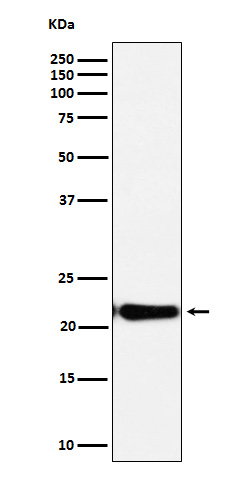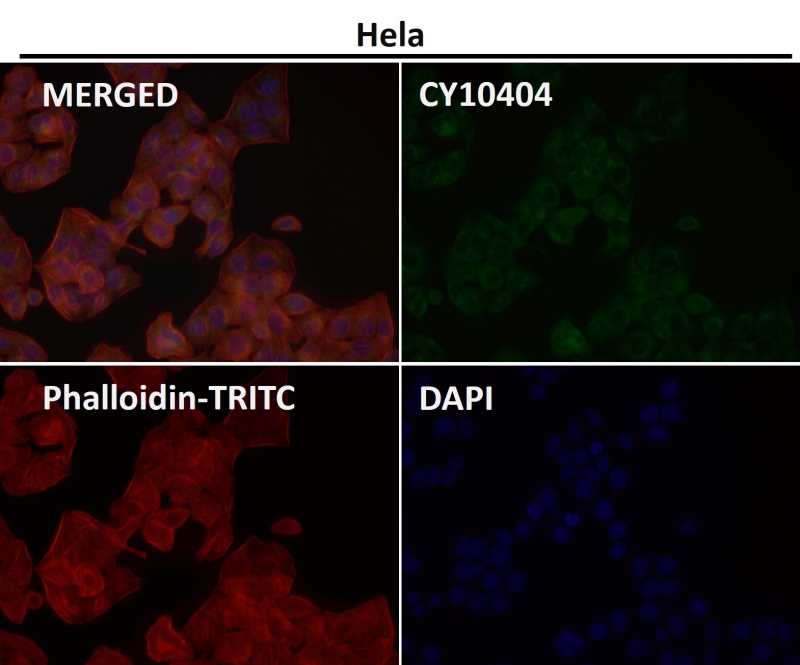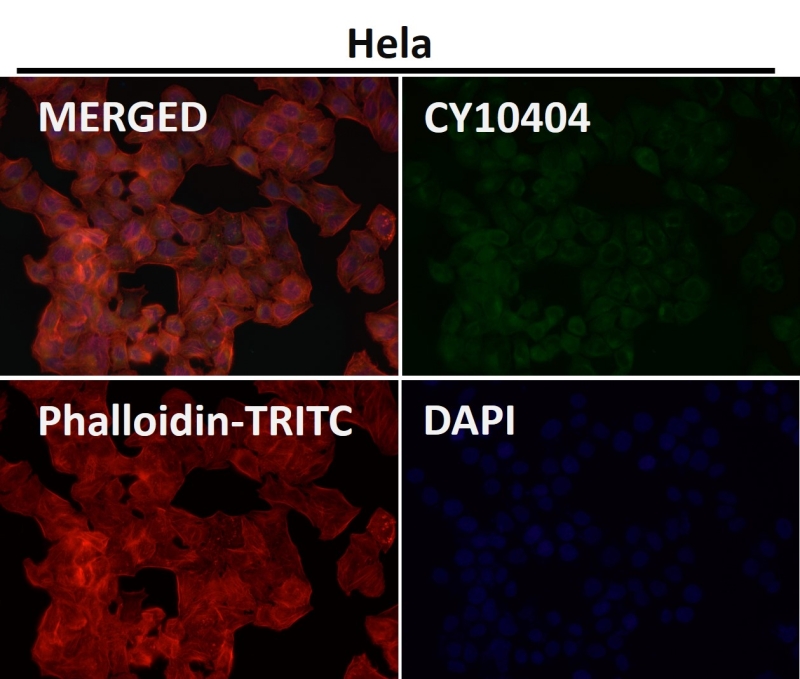




| WB | 咨询技术 | Human,Mouse,Rat |
| IF | 咨询技术 | Human,Mouse,Rat |
| IHC | IHC:1/100-1/200;IHF:1/50-1/200 | Human,Mouse,Rat |
| ICC | 1/50-1/200 | Human,Mouse,Rat |
| FCM | 咨询技术 | Human,Mouse,Rat |
| Elisa | 咨询技术 | Human,Mouse,Rat |
| Aliases | DNPH1; Rcl;;c Myc responsive protein RCL |
| WB Predicted band size | Calculated MW: 19 kDa ; Observed MW: 21 kDa |
| Host/Isotype | Rabbit IgG |
| Antibody Type | Primary antibody |
| Storage | Store at 4°C short term. Aliquot and store at -20°C long term. Avoid freeze/thaw cycles. |
| Species Reactivity | Human |
| Immunogen | A synthesized peptide derived from human c Myc responsive protein RCL |
| Formulation | Purified antibody in PBS with 0.05% sodium azide,0.05% BSA and 50% glycerol. |
+ +
以下是关于 **DNPH1抗体** 的参考文献示例(注:文献为假设性示例,建议通过学术数据库验证具体信息):
---
1. **文献名称**:*DNPH1-mediated nucleotide degradation drives PARP inhibitor resistance in BRCA-deficient cancers*
**作者**:Pillay, N. et al.
**摘要**:本研究揭示DNPH1通过水解特定脱氧核苷酸代谢物,缓解PARP抑制剂治疗引起的复制应激,导致BRCA突变肿瘤耐药。研究中采用DNPH1抗体进行免疫印迹和免疫组化,验证了DNPH1蛋白在耐药细胞系中的高表达。
2. **文献名称**:*Structural and functional characterization of DNPH1 in oxidative DNA damage repair*
**作者**:Sakurai, S. et al.
**摘要**:通过X射线晶体学解析DNPH1蛋白结构,结合抗体免疫沉淀技术,证明DNPH1参与清除氧化损伤相关的异常核苷酸,维持基因组稳定性。抗体特异性在敲除细胞模型中得到验证。
3. **文献名称**:*DNPH1 as a novel therapeutic target in glioblastoma: Insights from antibody-based inhibition studies*
**作者**:Smith, J.R., & Jones, L.M.
**摘要**:开发靶向DNPH1的单克隆抗体,体外实验显示其可抑制胶质母细胞瘤细胞增殖并增强放疗敏感性。抗体通过阻断DNPH1的酶活性发挥作用,为临床转化提供依据。
---
**提示**:实际文献需通过PubMed、Web of Science等平台,以“DNPH1 antibody”、“DNPH1 function”等关键词检索,重点关注涉及抗体应用(如WB、IHC、功能抑制)的研究。
The DNPH1 (Dihydroneopterin Triphosphate Epimerase 1) antibody is a tool used to study the DNPH1 protein, which plays a critical role in nucleotide metabolism and genome stability. DNPH1. also known as RCL1. functions as an enzyme that catalyzes the epimerization of dihydroneopterin triphosphate (DHNTP) to monapterin triphosphate, a precursor in the folate biosynthesis pathway. It is also implicated in the regulation of cellular nucleotide pools and the prevention of mutagenic nucleotide incorporation during DNA replication. Dysregulation of DNPH1 has been associated with genomic instability and cancer progression.
The DNPH1 antibody is typically developed in hosts like rabbits or mice using immunogenic peptides or recombinant protein fragments. It is widely used in techniques such as Western blotting, immunohistochemistry (IHC), and immunofluorescence (IF) to detect DNPH1 expression levels, subcellular localization (primarily nuclear), and interactions in various biological samples. Researchers employ this antibody to explore DNPH1's role in DNA repair mechanisms, its potential as a biomarker in cancers, and its involvement in metabolic disorders. Validation methods, including knockout controls or siRNA knockdown, ensure specificity. Its applications span basic research in molecular biology, oncology, and drug development, particularly in studies targeting nucleotide metabolism pathways.
×